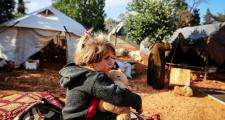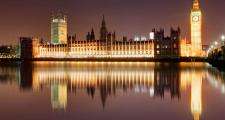BASW seeks assurances from government on foreign aid spending target
The Labour party had committed before the General Election to raising the foreign aid budget from 0.5% to 0.7% of gross national income, the UN goal for countries to spend which was enshrined in UK law in 2015.
However, Keir Starmer has since announced that the UK’s overseas aid will be cut to 0.3% as the government looks at ways to increase defence spending. The move led to International Development Minister, Anneliese Dodds resigning her position.
Meeting the 0.7% target was an ask outlined by BASW for any incoming government in our manifesto before last year’s election. Whilst we recognise and understand that the government faces difficult decisions across all areas of spending, it is vitally important that the UK fulfils our international obligations to vulnerable countries.
As social workers, upholding human rights and defending social justice are key pillars in our profession. Overseas aid plays a vital role in funding programmes that safeguard individuals from harm, lifts the poorest out of poverty, empowers communities and local leadership, and provides invaluable help to those facing conflict and other disasters.
The human cost of cutting spending to those most in need, particularly in an increasingly fragile world fraught with emerging and deepening global challenges, can be devastating. Protecting them requires strong leadership and collaboration from the international community driven by our collective funding commitments. The UK must not shy away from this responsibility, but lead by example.
BASW has therefore written to the UK Government to seek assurances that international development spending will be restored to 0.7% within this parliament. Read the full letter text below.
______________________________________________________
Dear Minister of State,
UK Foreign Aid Budget
In response to the announcement that the foreign aid budget will be reduced from 0.5% of gross national income to 0.3% in 2027, we’re writing to seek assurances that the UK Government is still committed to restoring development spending to 0.7% of gross national income within this parliament.
The British Association of Social Workers (BASW) is the UK’s largest professional membership organisation for social workers, representing over 21,000 members.
Restoring foreign aid contribution back to 0.7% GDP
Whilst we recognise and understand that the government faces difficult decisions across all areas of spending, it is vitally important that the UK fulfils our international obligations to foreign aid contributions by meeting the UN target enshrined in law in 2015. Aid helps to fund programmes carrying out lifesaving work across a number of areas, including safeguarding women and girls from violence, providing timely healthcare and medical supplies, supporting human rights defenders and relief workers in conflicts, and progressing towards the UN’s sustainable development goals.
As social workers, upholding human rights and defending social justice are central to our profession. We know that supporting those most in need and in their own countries has a direct and positive impact on their lives. Development aid shifts power, restores solidarity, and enables rights. It can play a critical role in supporting local leadership and empowering people to improve their wellbeing and address the causes and effects of poverty.
When foreign aid contributions were previously reduced from 0.7% to 0.5% in 2019, the damage caused by reduced spending on critical projects in vulnerable countries was devastating. With the impact on women and girls, indigenous people, people with a disabilities and others in humanitarian need being especially severe. In January 2024, a report by the Commons International Development Committee warned that cuts to UK aid from 2020 onwards were costing the lives of the most vulnerable women in the world and were likely to lead to nearly 200 000 more unsafe abortions being performed in Africa alone.[i] The human cost of reducing spending further still to 0.3% over a sustained period of time will therefore lead to even higher numbers of preventable deaths, worse health outcomes, and longer-term societal problems.
We live in an increasingly fragile world fraught with emerging and deepening global challenges, including climate change and economic instability, that pose grave risks to humanity. The poorest countries are most harshly exposed to these threats. Protecting them requires strong leadership and collaboration from the international community driven by our collective funding commitments. The UK must not shy away from this responsibility but lead by example.
[i]https://www.parliament.uk/external/committees/news/2024/january/idc_reports_on_devastating-impact_of_slashed_uk_aid/


